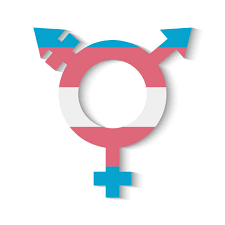Estradiol, a form of estrogen, is often associated with women’s health, but it also plays a crucial role in men’s physiology. While testosterone typically takes the spotlight in discussions about male hormone health, estradiol can significantly impact various bodily functions. Understanding estradiol’s role, especially when levels are elevated, is essential for maintaining overall health and well-being in men. In this article, we’ll explore estradiol’s significance, the signs of high levels, and effective management strategies.
What is Estradiol and Why Should Men Care About It?
Estradiol is the primary form of estrogen, a hormone that plays a vital role not just in women’s reproductive health but also in various functions within the male body. In men, estradiol is produced mainly through the aromatization of testosterone, and it is important for maintaining bone density, regulating libido, and supporting cardiovascular health. While men need this hormone in lower levels than women, its proper balance is crucial for overall health.Sissification Forced FeminizationEstradiol Valerate Injection Mtf
Men should care about estradiol because an imbalance—especially elevated levels—can lead to various health issues. Understanding estradiol’s function helps men recognize the importance of hormonal balance and the potential effects of hormonal shifts, which can occur due to several factors like age, lifestyle, and health conditions. Being aware of estradiol’s role empowers men to take proactive steps towards maintaining their health.
The Role of Estradiol in Male Hormone Balance Explained
Estradiol contributes to a delicate balance of hormones that affects numerous bodily functions in men. It plays a key role in regulating libido, promoting healthy sperm production, and influencing mood and cognition. Estradiol also aids in the maintenance of bone mass and cardiovascular health, making it an essential player in overall male wellness.
In addition to its physical functions, estradiol interacts with testosterone and other hormones to maintain hormonal equilibrium. A healthy balance of estradiol is necessary to counteract the effects of excessive testosterone, which can lead to conditions like aggression and mood swings. Therefore, understanding estradiol’s role in male hormone balance is vital for recognizing how it contributes to overall health.
Signs Your Estradiol Levels Might Be Too High
When estradiol levels rise beyond the normal range, men may experience a variety of noticeable symptoms. Common signs include weight gain, particularly around the abdomen, increased breast tissue, and changes in sexual function like decreased libido or erectile dysfunction. These physical changes can be distressing and may lead to lowered self-esteem and confidence.
In addition to physical symptoms, high estradiol levels can also impact emotional health. Men may find themselves experiencing mood swings, irritability, or even symptoms of depression. Recognizing these signs early can prompt individuals to investigate the underlying causes and seek appropriate medical advice or lifestyle changes.
Common Causes of High Estradiol Levels in Men
Several factors can contribute to elevated estradiol levels in men. One common cause is obesity, as excess fat tissue can convert testosterone into estradiol through a process known as aromatization. This means that the more body fat a man has, the more likely he is to have increased estradiol levels, leading to a cycle of hormonal imbalance.
Other causes include certain medical conditions like liver disease, which can impair the body’s ability to metabolize hormones effectively. Additionally, the use of anabolic steroids or testosterone replacement therapy can lead to elevated estradiol levels due to the conversion of excess testosterone. Lifestyle factors, such as excessive alcohol consumption and a sedentary lifestyle, can also contribute to hormonal imbalances in men.
The Impact of High Estradiol on Men’s Health and Well-being
High estradiol levels can lead to various health concerns for men. Physically, it can result in conditions such as gynecomastia (the development of breast tissue), infertility, and increased body fat. These changes can be both uncomfortable and distressing, leading to further complications such as low self-esteem and anxiety about body image.
Emotionally and psychologically, elevated estradiol can contribute to mood disorders and affect overall mental health. Men with high estradiol levels may struggle with irritability, depression, and anxiety. Addressing these hormonal imbalances is crucial to improving both physical and mental health, highlighting the importance of understanding and managing estradiol levels.
How to Test Your Estradiol Levels: What to Expect
If you suspect that your estradiol levels may be high, a simple blood test can provide the answers you need. Typically, this test is done in a healthcare provider’s office or laboratory, and it involves drawing a small sample of blood for analysis. The healthcare provider might also check other hormone levels, such as testosterone, to gain a comprehensive view of your hormonal balance.
When preparing for the test, it’s generally recommended to avoid certain medications and supplements that could affect hormone levels, but always consult with your doctor for specific instructions. Once the test is completed, your healthcare provider will interpret the results and discuss potential next steps based on your estradiol levels.
Tips for Managing High Estradiol Naturally and Effectively
Managing high estradiol levels can often be approached through lifestyle changes. A balanced diet rich in whole foods, including vegetables, lean proteins, and healthy fats, can support hormonal balance. Foods that are high in fiber can also help reduce estradiol levels by promoting healthy digestion and eliminating excess hormones from the body.
In addition to diet, regular physical activity is essential for managing estradiol levels. Exercise helps reduce body fat, which can decrease the aromatization process of testosterone to estradiol. Strength training and cardiovascular workouts are particularly effective, but any form of consistent exercise can contribute to better hormonal health. Reducing alcohol intake and managing stress through techniques like mindfulness or yoga can also support hormonal balance.
When to Seek Medical Help for Estradiol Issues
If you suspect that your estradiol levels are high and lifestyle changes aren’t yielding results, it may be time to seek medical advice. Consulting with a healthcare provider is important, especially if you’re experiencing physical symptoms like gynecomastia, significant weight changes, or emotional disturbances. A doctor can provide a thorough evaluation and may recommend further testing to understand the underlying causes.
In some cases, medical interventions may be necessary. Treatment options may range from medications that block estradiol production to more advanced therapies aimed at restoring hormonal balance. It’s important to have open and honest discussions with your healthcare provider about your symptoms and concerns for optimal health management.
Understanding high estradiol levels in men is vital for maintaining overall health and well-being. By recognizing the signs, knowing the causes, and seeking the right tests, men can take proactive steps to address hormonal imbalances. With lifestyle changes and proper medical guidance, it’s possible to manage estradiol levels effectively, leading to improved physical and emotional health. Don’t hesitate to explore these issues; your health is worth it!


